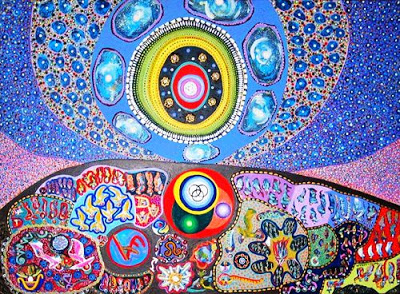Philosophy

- Science, Philosophy, Cosmology
Cosmology is the attempt to understand in scientific terms the structure and evolution of the universe as a whole. This ambition has been with us since the ancient Greeks, even if the developments in modern cosmology have provided a picture of the universe...
- Assumptions And Limits Of Contemporary Cosmology
Bias is part of cosmological epistemology... "Of course, science is not simply based on observation and experiment so innocently. If science were naively based on observation and experiment, the science as we know now may not be possible. On the contrary,...
- Observational Cosmology...edwin Hubble And Harlow Shapley
Abstract: Observational cosmology of the first decades of the Twentieth Century was dominated by two giants: Edwin Hubble and Harlow Shapley. Hubble's major contributions were to the study and classification of individual galaxies with large telescopes,...
- L. Krauss And Cosmology
Looks like Lawrence Krauss [The Physics of Star Trek] has written a paper on man and cosmology. Abstract: Cosmological discoveries over the past century have completely changed our picture of our place in the universe. New observations have a realistic...
- Astronomy: Classic Debates
Being the year of astronomy it would be worthwhile to review some of the great debates of the past: The 1921 debate between Harlow Shapley and Herber Curtis in 1921 and the cosmological debates of the 1930s and 1940s. Of the latter from the Stanford...
Philosophy
"Criteria of Science, Cosmology, and Lessons of History"...an interesting paper by Helge Kragh

Abstract...
Perhaps more than any other science, cosmology exemplifies the inevitable contact between science and philosophy, including the problem of the demarcation criteria that distinguish science from non-science. Although modern physical cosmology is undoubtedly scientific, it is not obvious why it has this status, and nor is it obvious that all branches of theoretical cosmology satisfy ordinarily assumed criteria for science. While testability is generally admitted as an indispensable criterion for a theory being scientific, there is no agreement among cosmologists what testability means, more precisely. For example, should testability be taken to imply falsifiability in the sense of Popper? I discuss this and related questions by referring to two episodes of controversy in the history of modern cosmology, the debate over the steady state theory in the 1950s and the recent debate concerned with the anthropic multiverse. In addition, I draw attention to the use of historical analogies in cosmological and other scientific arguments, suggesting that such use is often misuse or otherwise based on distortions of the history of science.
"Criteria of Science, Cosmology, and Lessons of History" by Helge Kragh
Perhaps more than any other science, cosmology exemplifies the inevitable contact between science and philosophy, including the problem of the demarcation criteria that distinguish science from non-science. Although modern physical cosmology is undoubtedly scientific, it is not obvious why it has this status, and nor is it obvious that all branches of theoretical cosmology satisfy ordinarily assumed criteria for science. While testability is generally admitted as an indispensable criterion for a theory being scientific, there is no agreement among cosmologists what testability means, more precisely. For example, should testability be taken to imply falsifiability in the sense of Popper? I discuss this and related questions by referring to two episodes of controversy in the history of modern cosmology, the debate over the steady state theory in the 1950s and the recent debate concerned with the anthropic multiverse. In addition, I draw attention to the use of historical analogies in cosmological and other scientific arguments, suggesting that such use is often misuse or otherwise based on distortions of the history of science.
"Criteria of Science, Cosmology, and Lessons of History" by Helge Kragh
- Science, Philosophy, Cosmology
Cosmology is the attempt to understand in scientific terms the structure and evolution of the universe as a whole. This ambition has been with us since the ancient Greeks, even if the developments in modern cosmology have provided a picture of the universe...
- Assumptions And Limits Of Contemporary Cosmology
Bias is part of cosmological epistemology... "Of course, science is not simply based on observation and experiment so innocently. If science were naively based on observation and experiment, the science as we know now may not be possible. On the contrary,...
- Observational Cosmology...edwin Hubble And Harlow Shapley
Abstract: Observational cosmology of the first decades of the Twentieth Century was dominated by two giants: Edwin Hubble and Harlow Shapley. Hubble's major contributions were to the study and classification of individual galaxies with large telescopes,...
- L. Krauss And Cosmology
Looks like Lawrence Krauss [The Physics of Star Trek] has written a paper on man and cosmology. Abstract: Cosmological discoveries over the past century have completely changed our picture of our place in the universe. New observations have a realistic...
- Astronomy: Classic Debates
Being the year of astronomy it would be worthwhile to review some of the great debates of the past: The 1921 debate between Harlow Shapley and Herber Curtis in 1921 and the cosmological debates of the 1930s and 1940s. Of the latter from the Stanford...
